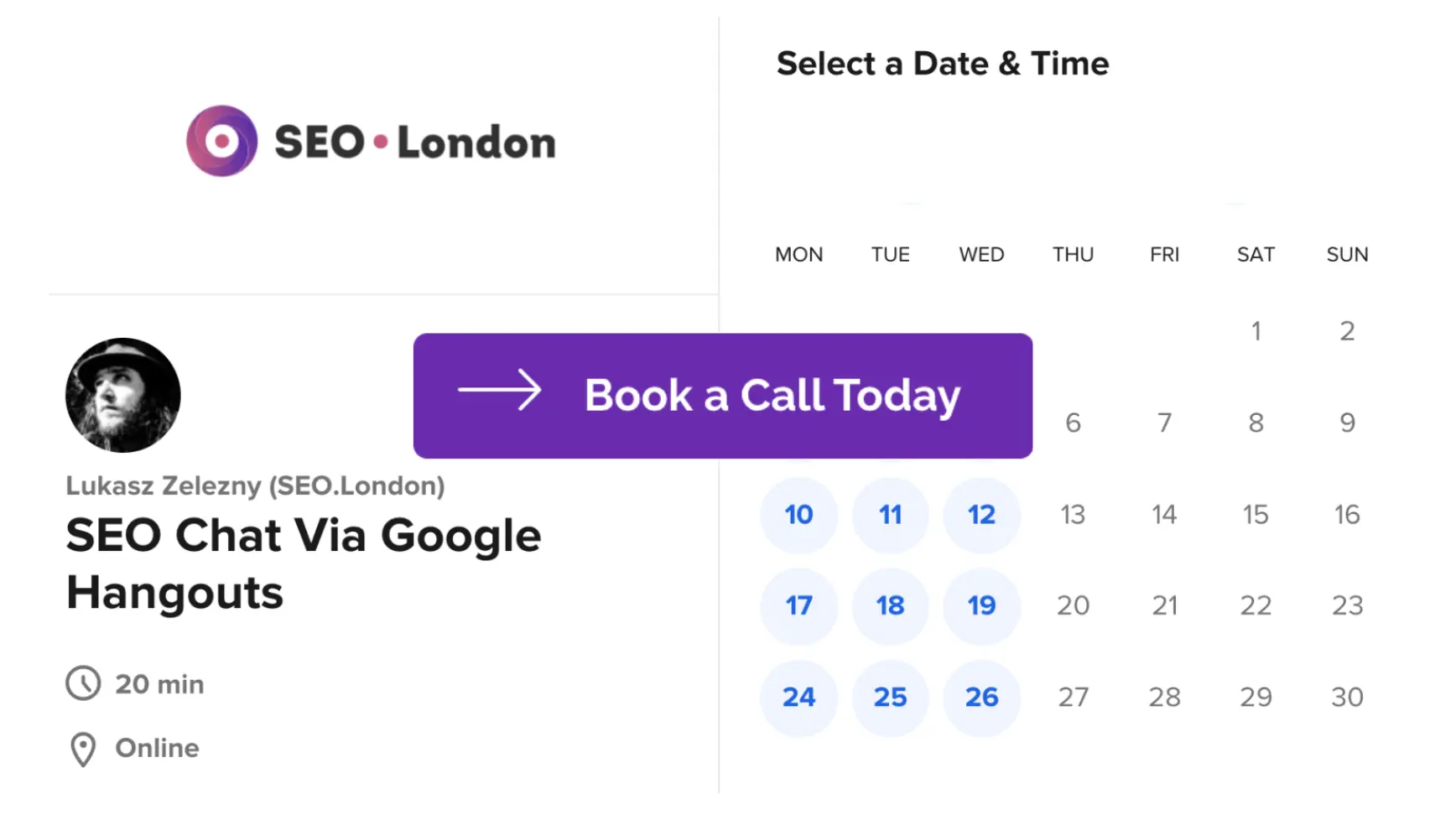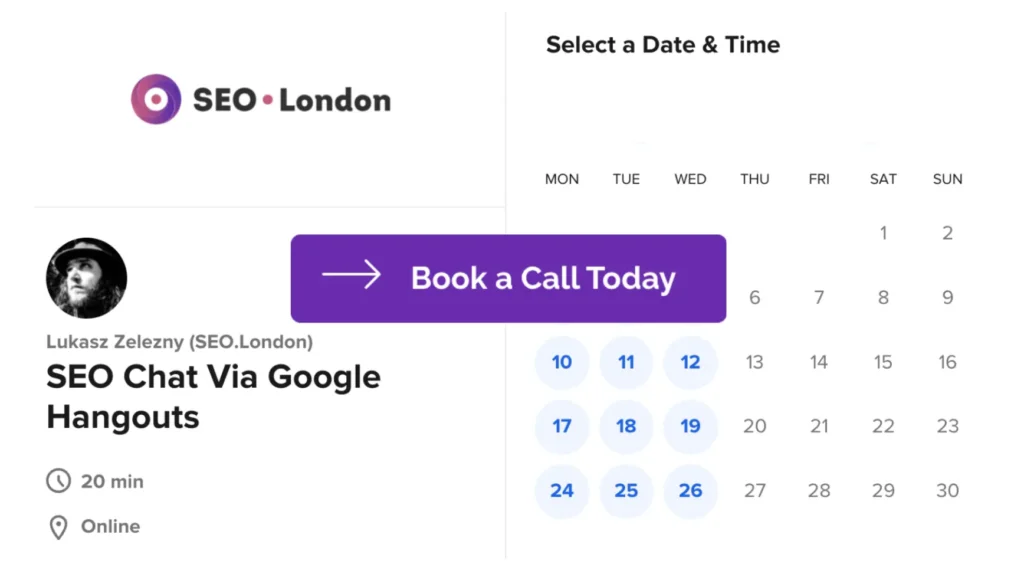-
Backlinks
- How does Google Penguin work?
- How to detect and remove spammy links
- How to get Edu Backlinks
- How to Get other Sites to Link to Your Website
- What Are Toxic Backlinks
- What Is A Broken Link
- What is an Example of a Backlink
- What Is Deep Linking
- What Is Disavow Backlinks
- What is On-Page and Off-Page Optimisation
- What is One Way Link Building
-
Blackhat
-
CMS
-
Glossary
- How Many Backlinks do I Have?
- How to measure SEO?
- How to report black hat SEO?
- What is 301 Redirect
- What is 404 Error
- What is a Call to Action?
- What is a Content Management System?
- What is a Customer Journey?
- What is a Dofollow Link?
- What is a Google Penalty?
- What is A/B Testing
- What is Above the Fold?
- What is Affiliate Marketing
- What is Ahrefs Rank (AR)
- What is Alt Text
- What is AMP
- What is an Advertorial?
- What is an ALT Tag?
- What is Anchor Text?
- What is Article Spinning
- What is B2B Marketing?
- What is Backlinks
- What is Black Hat SEO
- What is Blogosphere
- What is Bookmark
- What is Bounce Rate?
- What is Brand Awareness
- What is Brand Mentions
- What is Branded keywords
- What is Breadcrumb Navigation?
- What is Broken Links
- What is Browser Caching?
- What is Canonical URL
- What is Chat GPT
- What is Click-Through Rate?
- What is Cloaking
- What is Co-Citation
- What is Content Delivery Network (CDN)
- What is Content Marketing?
- What is Conversion
- What is Conversion Rate Optimization?
- What is Conversion Rate?
- What is Cookie
- What is Crawl Budget?
- What is Crawlability
- What is Crawler
- What is CTR (Click Through Rate)
- What is Directory
- What is Disavow?
- What is Domain
- What is Domain Authority?
- What is Domain Popularity?
- What is Domain Rating (DR)
- What is Doorway Page
- What is Duplicate Content
- What is E-A-T in SEO
- What is Evergreen Content
- What is External Link
- What is External Links
- What is Funnel
- What is Gateway Page
- What is Google Algorithm
- What is Google Analytics
- What is Google Bot
- What is Google Dance
- What is Google Sandbox
- What is Google Webmaster Guidelines
- What is Grey Hat SEO
- What is Guest Blogging
- What is Guest Posting
- What is HTTPS
- What is Hummingbird Update
- What is Hyperlink
- What is Inbound Link
- What is Inbound Marketing
- What is Indexed
- What is Internal Link
- What is Internal Links
- What is Keyword Cannibalization
- What is Keyword Density
- What is Keyword Research
- What is Keyword Stuffing?
- What is Keywords
- What is Landing Page
- What is Lead Generation
- What is Link Bait
- What is Link Equity
- What is Link Exchange
- What is Link Farm
- What is Link Profile
- What is Link Reclamation
- What is Link Schemes
- What is Link Spam
- What is Link Types
- What is Link Velocity
- What is Local Pack
- What is Long-Tail Keyword
- What is Meta Description
- What is Meta Keywords
- What is Meta Tags
- What is Mobile-First Indexing
- What is Nofollow
- What is Off-Page SEO
- What is On-Page SEO
- What is Organic Link
- What is Organic Search Results
- What is Outbound Link
- What is Outreach
- What is Page Authority
- What is PageRank
- What is Panda Update
- What is Penguin Update
- What is Query
- What is Rankbrain
- What is Reciprocal Link
- What is Reciprocal Links
- What is Reconsideration Request
- What is Redirect
- What is Reputation Management
- What is Rich snippets
- What is Robots
- What is Robots.txt
- What is Search Engine Optimization
- What is Search Results
- What is Search Term
- What is Seed Keywords
- What is Sitelinks
- What is Sitemap
- What is Sitemaps
- What is Spider
- What is Structured Data
- What is subdomain
- What is Thin Content
- What is Time on Page
- What is Traffic
- What is Transactional Keywords
- What is TrustRank
- What is Unnatural Links
- What is URL Rating (UR)
- What is Vertical Search
- What is Viral Marketing
- What is Voice Search
- What is Webspam
- What is White Hat SEO
- What is WordPress
- What is XML Sitemap
- Show all articles ( 131 ) Collapse Articles
-
Google Analytics
-
Google Search Algorithm
-
Keywords
-
Other
- Do I Need an SEO Company
- How Do I Find A Good Seo Company In London
- How Do Subdomains Affect Seo
- How Do You Track A Featured Snippet
- How Does Link Building Help Seo
- How Hard Is Seo To Learn
- How Important Are Keywords In Seo
- How Long Does Google Indexing Take
- How Long Does It Take To Learn Seo
- How Long Should A Title Tag Be
- How Many Hits Does My Competitors Website Get
- How Much Should I Spend on SEO Per Month
- How Much Should SEO Cost
- How Much Should SEO Cost
- How To Add Keywords In Seo Yoast
- How To Add Keywords To Website For Seo
- How To Add Meta Description Wordpress
- How To Add Users To Google My Business
- How To Beat Competitors Seo
- How To Calculate Bounce Rate
- How To Check Daily Traffic Of Website
- How To Check Dofollow And Nofollow Links
- How To Check If A Domain Is Penalized
- How To Check Other Website Traffic
- How To Check Website Popularity
- How To Choose An Seo Agency
- How To Choose An Seo Company
- How To Create A Sitemap
- How To Create Google Web Stories
- How To Create Seo Title
- How To Delete Google My Business Account
- How To Disavow Backlinks In Search Console
- How To Do Seo Yourself
- How To Find A Good Seo Consultant
- How To Find An Seo Expert
- How To Find Competitors Backlinks
- How To Find Google My Business Url
- How To Find Seo Clients
- How To Find Serp Features Opportunity
- How To Find The Search Volume For A Keyword
- How To Find Toxic Backlinks
- How To Find Trending Keywords
- How To Find Your Domain Authority Score
- How To Get Google To Index Your Website
- How To Get Indexed On Google Faster
- How To Improve Rank For E-Commerce
- How To Increase Domain Authority
- How To Increase My Domain Authority
- How to Increase SEO of My Website
- How To Integrate Google Search Console With Google Analytics
- How To Make Content Rank For E-Commerce
- How to Make Money in SEO
- How To Measure Seo
- How To Name Images For Seo
- How To Optimise Your Website
- How To Optimize Content For Seo
- How To Protect Your Website From Negative Seo
- How To Remove Backlinks From Webmaster Tools
- How To Remove Bad Backlinks
- How To Remove Bad Backlinks From Google
- How To Remove Bad Reviews From Google My Business
- How To Remove Urls From Google
- How To See Alt Text
- How To Sell Seo Over The Phone
- How To Track Keywords Ranking
- How To Use Google My Business For Seo
- How To Use Google Trends For Seo
- How To Use Schema Markup For Seo
- How To Use Semrush To Improve Seo
- How To Write Alt Text For Images For Seo
- How To Write H1 Tags For Seo
- How To Write Seo Friendly Blog Posts
- How To Write Seo-Friendly Alt-Text For Your Images.
- How User Experience Affects Seo
- What Are Local Seo Services
- What Are Rich Snippets
- What Are Rich Snippets In Seo
- What Are Serp Features
- What Are Sitelinks
- What Does A Moz Score Mean
- What Does Anchor Text Mean
- What Does Canonical Mean
- What Does Ctr Stand For
- What Does Digital Marketer Do
- What Does Domain Authority Mean
- What Does Eat Mean In Seo
- What Does Server-Side Rendering Mean
- What Is A Good Domain Authority
- What Is A Knowledge Graph
- What Is A Referring Domain
- What Is Cloaking In Seo
- What Is Deep Linking In Seo
- What Is Dofollow Link
- What Is Doorway Pages
- What Is Ecommerce Seo
- What Is Google Penalty
- What Is Google Search Console Used For
- What Is Indexing In Seo
- What Is Internal Linking
- What Is Keyword Clustering
- What Is Keyword Density In Seo
- What Is Local Seo Marketing
- What Is Nofollow Link
- What is Parasite SEO
- What Is Rank Tracker
- What is SEO Writing
- What Is The Recommended Format For Implementing Schema Markup
- What Is The Use Of Robots Txt File In Seo
- What Is User Intent
- What Is Yoast Seo
- Why SEO Fails
- Show all articles ( 96 ) Collapse Articles
-
SEO-Tools
- Asodesk - Best SEO Tool Directoy
- Boomerank - Best SEO Tool Directoy
- Jetoctopus - Best SEO Tool Directoy
- Keyword Hero - Best SEO Tool Directoy
- Labrika - Best SEO Tool Directoy
- Longtail Ux - Best SEO Tool Directoy
- Marketingtracer - Best SEO Tool Directoy
- Pulno - Best SEO Tool Directoy
- Ranktools - Best SEO Tool Directoy
- Redirection Io - Best SEO Tool Directoy
- Saphyte - Best SEO Tool Directoy
- Seller Seo - Best SEO Tool Directoy
- Sellersprite - Best SEO Tool Directoy
- Senuto - Best SEO Tool Directoy
- Seo Audit - Best SEO Tool Directoy
- Seo Panel - Best SEO Tool Directoy
- Seopoz - Best SEO Tool Directoy
- Spyserp - Best SEO Tool Directoy
- Website Crawler - Best SEO Tool Directoy
- Wordlift - Best SEO Tool Directoy
- Show all articles ( 5 ) Collapse Articles
-
Wordpress
What is Long-Tail Keyword
What is a Long-Tail Keyword?
A long-tail keyword refers to a specific and highly targeted search term or phrase that usually consists of three or more words. These keywords are more specific and less competitive than broad keywords, as they target a narrower audience and are associated with less search volume. Long-tail keywords are vital in search engine optimization (SEO) strategies as they help businesses attract highly relevant and qualified traffic to their websites, ultimately increasing their chances of conversions.
Long-tail keywords are typically characterized by their higher intent and specificity. Users who search using long-tail keywords are generally in the later stages of the buying process, displaying a clear understanding of what they are looking for. Due to the specificity of their search, long-tail keywords often result in higher conversion rates compared to broader, more generic keywords.
Long-tail keywords are crucial for SEO because they allow businesses to rank higher in search engine results pages (SERPs) by targeting specific niche markets. While broad and highly competitive keywords may attract a significant amount of traffic, they often face fierce competition from established websites. On the other hand, long-tail keywords offer businesses the opportunity to rank higher and gain visibility on SERPs, especially when their content aligns closely with user search intent.
Increase your online presence with Lukasz Zelezny, an SEO Consultant with over 20 years experience — schedule a meeting now.

Using long-tail keywords in website content, meta tags, headings, and URLs can greatly improve a website\’s visibility in organic search results. By incorporating long-tail keywords strategically, businesses can optimize their website for specific niche markets and attract highly relevant traffic that is more likely to convert.
Another advantage of long-tail keywords is their ability to target specific user needs and provide valuable content. By understanding the unique problems and interests of their target audience, businesses can create content that directly addresses these needs, positioning themselves as authoritative sources in their industry.
Furthermore, long-tail keywords are particularly valuable in optimizing for voice search, which is becoming increasingly popular with the rise of virtual assistants and smart speakers. Voice searches are often lengthier and more conversational, mirroring the natural language users employ in their daily conversations. By incorporating long-tail keywords that align with these conversational queries, businesses can enhance their chances of appearing in voice search results.
In conclusion, long-tail keywords are specific and highly targeted search terms that help businesses attract relevant and qualified traffic to their websites. By incorporating long-tail keywords strategically, businesses can improve their search engine rankings, increase visibility in SERPs, and ultimately boost conversions. Understanding the importance of long-tail keywords in SEO can greatly enhance a website\’s overall performance and success in the online marketplace.


